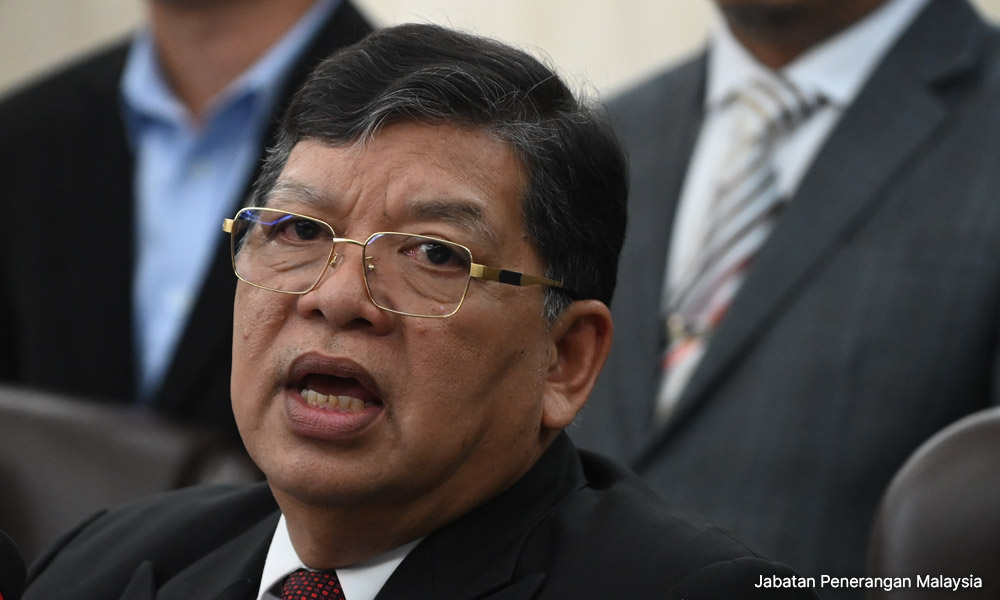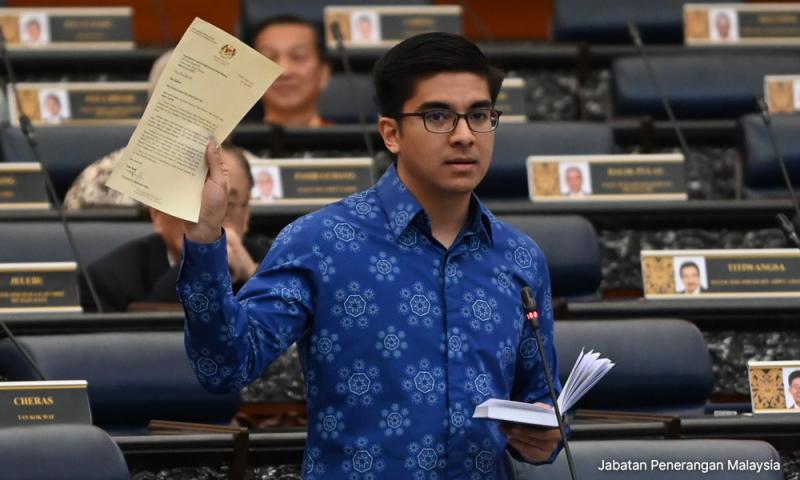LETTER | Give Muda credit for pursuing checks and balances
LETTER | Before the 14th general elections last November, the term “check and balance” was on everyone’s lips, especially those who were aligned with Pakatan Harapan.
It was seen as the most rational thing to do, especially in evaluating a particular government’s performance.
Nonetheless, seven months down the road, the same term is now seen as just “a lousy noise or an annoying quack” because the focus should be on nation-building instead of evaluating or even questioning the government’s decision-making as well as responses to certain issues.
This is very much pointing to the fact that Muda president Syed Saddiq Syed Abdul Rahman’s called for a motion to debate the littoral combat ship (LCS) issue in the Parliament before it was rejected by Dewan Rakyat Speaker Johari Abdul.
The speaker rejected it on the basis that there was no clear reason why the issue was of public interest or a pressing matter.
The situation then blew out of proportion when Syed Saddiq decided to take things to social media by posting a cryptic tweet, somewhat questioning the government’s intention in silencing him which caused some backlash from netizens that deemed his tweet unnecessary.

The internal war within the coalition government partners continued when the PKR Youth accused the Muda president of misleading the public, in addition to spreading misinformation and half-truths that discredited the government.
Syed Saddiq responded by saying that he will not be silenced in addressing the LCS issue because it is of public interest - criticising the change in PKR Youths’ tune since becoming part of the government.
Many would look at Muda’s recent outburst as a seasonal rift between the party and Harapan particularly, PKR.
Additionally, some might even look at this situation as Muda “acting out” because seat negotiations for the upcoming six state elections have not gone their way,
And thus, Muda seems to be looking at ways in making itself relevant in the Malaysian political arena.
Whether this is true or not, I am looking at this more from a different point of view.
The LCS issue is of interest to Muda due to the fact that they currently have more to lose because of the ongoing case involving Muda secretary-general Amir Hariri Abd Hadi, who has been charged under the Peaceful Assembly Act 2012 over the “Mana Kapal LCS” protest held in August last year.

The fact that the charges against Amir have not been dropped has indeed annoyed Muda even more, thus warranting their frustration over this issue.
Nonetheless, even if the charges were to be dropped, it should be done in accordance with due process.
In addition to the LCS issue being an interest to Muda, I view also view its outburst or criticism of the government over the LCS issue as a breath of fresh air.
This demonstrates political maturity as well as the application of checks and balances by a seemingly government-friendly party against the government that they had initially and still endorse.
This was not how things were in Malaysia although there has been some glimpse of it post-2018.
Just because the six state elections are around the corner and the current coalition government are looking at limiting criticisms to gain public trust, it doesn’t mean that positive political practices should be neglected.
Plus, this is part of the good governance mantra that Prime Minister Anwar Ibrahim has been speaking about since helming the top post in the country.
‘Disruptor to status quo’
Muda, as a youth-led party, should be given some credit for adhering to positive political practices as well as not forgetting its initial aim as a political party that fashioned itself as “a disruptor to the status quo”, which is what they are basically doing at the moment.
They have not always been the most convincing at times but if we are giving credit to the Move Forward Party in Thailand as well as the Indonesian Solidarity Party for disrupting the status quo, then we should also give Muda some credit for actually trying to play the role.
Although some might feel that the comparison to the other two youth-led parties is a bit much, credit must be given where it is due.
The only downside to this is Muda’s consistency in being the disrupter because it has been proven at times that their inexperienced nature has been their weakness.
However, no party is perfect, and the hope is that Muda learns from the many mistakes and holds on to their roots when the party gets established and works on becoming an influential voice in the Malaysian political system.
While this is indeed a difficult challenge even among the traditional political parties, I think that Muda has an added advantage in pleasing the younger demography of voters.
And this is something that they should be selling to the current government in trying to amply their add-on value to the already crowded field of political parties that currently forms the unity government.
Author is a doctoral candidate from Hiroshima University, Japan.
The views expressed here are those of the author/contributor and do not necessarily represent the views of Malaysiakini.
RM12.50 / month
- Unlimited access to award-winning journalism
- Comment and share your opinions on all our articles
- Gift interesting stories to your friends
- Tax deductable
